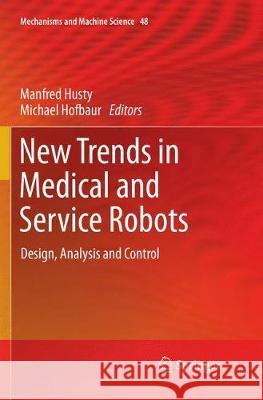New Trends in Medical and Service Robots: Design, Analysis and Control » książka
topmenu
New Trends in Medical and Service Robots: Design, Analysis and Control
ISBN-13: 9783319867496 / Angielski / Miękka / 2018 / 330 str.
Kategorie:
Kategorie BISAC:
Wydawca:
Springer
Seria wydawnicza:
Język:
Angielski
ISBN-13:
9783319867496
Rok wydania:
2018
Wydanie:
Softcover Repri
Ilość stron:
330
Oprawa:
Miękka
Wolumenów:
01











